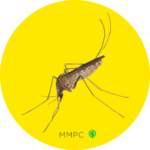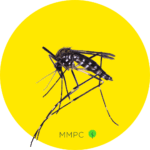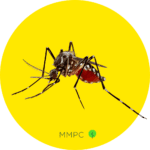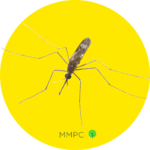
Want to prevent mosquitoes from breeding in your backyard, house, or building? Before you call an exterminator, it’s important to understand the cause of your mosquito infestation.
Mosquito Season in NYC and Long Island
Alongside sunshine, blooming flowers, and warm weather, spring also brings the beginning of mosquito season for New York City and Long Island.
These winged pests not only get on your nerves with their itchy bites, but they also carry and transmit various diseases. A scourge of mosquitoes can also be challenging and costly to exterminate because they reproduce so quickly.
One of the best ways to protect your family from mosquitoes is by being proactive about preventing them from breeding near your home.
What Types of Mosquitoes Are Most Common In New York City and Long Island?
The northern house mosquito (Culex pipiens) is the most common in New York City, followed by the Asian tiger mosquito (Aedes albopictus).
Out of 3,000 species of mosquitoes in the world, 70 of them are known to live in New York. Although this sounds like a lot, only a handful of mosquito species actually feed on humans.
The most notable species of mosquitoes that cause homeowners great frustration during the spring and summer include:
- Northern House Mosquito
- Asian Tiger Mosquito
- Yellow Fever Mosquito
- Eastern Saltmarsh Mosquito
- Common Malaria Mosquito
These mosquitoes tend to live in suburban areas where they can be near humans. They are also considered vector pests, which are defined by the World Health Organization as “living organisms that transmit infectious diseases between humans or from animal to human.”
What Conditions Are Ideal For Mosquitoes To Breed?
Mosquitoes become problematic in the spring when temperatures start to reach 70 degrees Fahrenheit. Spring showers are also a key ingredient for mosquito breeding, providing moisture and puddles of standing water where mosquitoes love to lay their eggs.
The northern house mosquito is a type of permanent water mosquito. Female mosquitoes create egg “rafts,” which float freely in the water and hatch after a few days. This means that their reproduction cycle requires either fixed or semi-permanent bodies of stagnant water. Examples of such places in your backyard may include birdbaths, fish ponds, kiddie pools, storm drains, and even ordinary puddles.
The Asian tiger mosquito is a type of floodwater mosquito. Instead of laying floating egg rafts in standing water, these species lay their eggs individually in moist soil or containers just above the waterline. The eggs remain dormant until rain or flooding causes the water level to rise, saturating and causing the eggs to hatch.
How to Stop Mosquitoes From Breeding
The best way to stop mosquito activity is to cut it off at the source. By preventing mosquitoes from breeding near your home, you can protect your family, friends, and neighbors from itchy bites and mosquito-borne diseases.
There are several different ways to prevent mosquitoes from breeding. A good place to start is identifying items and places that provide optimal conditions for mosquitoes to breed.
You’ll also want to stop mosquitoes from entering your home by making sure entrances and windows are protected by screens, and by sealing any gaps around walls, windows, and doors.

Potential Mosquito Breeding Sites in Your Backyard
Some unsuspecting items in your yard might actually be harboring mosquito eggs or larvae. Places or containers where water collects or stagnates provide perfect nurseries for mosquitos to breed:
- Birdbaths and fountains
- Flowerpots, buckets, and other gardening accessories
- Garbage cans and lids
- Rain gutters
- Outdoor furniture
- Kiddie pools
- Children’s outdoor toys
- Water dishes for pets
Mosquito Control Options
Bug zappers and citronella candles may be easy-to-find and low-maintenance products that help keep adult mosquitoes at bay. However, they won’t prevent pesky mosquito scourges from reproducing and coming back.
Here are some commercial products that may provide longer-term solutions to your backyard mosquito problem.
Mosquito Dunks and Bits
Mosquito dunks and mosquito bits are the most effective and eco-friendly option to prevent mosquitoes from breeding. These are small tablets containing an organic substance that specifically targets mosquito larvae.
Mosquito dunks are donut-shaped tablets that are approximately 2 inches in diameter. When placed in standing water, the tablets slowly dissolve and release BTI (bacillus thuringiensis israelesis). BTI is a naturally occurring soil bacterium that’s toxic to mosquito larvae, yet harmless to people, animals, and beneficial insects such as honey bees.
Mosquito bits are also made with BTI to eliminate mosquito larvae. Whether you choose to use mosquito bits or mosquito dunks depends on the situation. Mosquito bits are designed to dissolve quickly for more rapid control of known mosquito problems, while dunks are designed to dissolve slowly for longer-term control.
Mosquito Ovitraps
Ovitraps are devices that attract and kill egg-laying mosquitos and their larvae. Consisting of dark containers with water, ovitraps are made to provide an ideal breeding environment for mosquitoes. Once mosquitoes enter to lay their eggs, lethal substances inside the trap kill the adult mosquitoes as well as any offspring that hatches.
Insecticide Sprays
While insecticides won’t directly stop mosquitoes from breeding, they can still be an effective way to suppress mosquito problems by killing and repelling adult mosquitoes.
Residual sprays can linger in an area and remain effective for up to 4 weeks. Certain products that contain insect growth receptors (IGRs) like Novaluron will target young insects, disrupting their natural growth and preventing them from reaching maturity.
Other Mosquito Control Methods
- Pumps – Another way to keep pools, fountains, and ponds clear of eggs and larvae is to install a pump to aerate the water and keep it moving. Mosquitoes prefer to lay eggs in standing water, so creating currents will deter them from breeding.
- Fish – Growing fish that eat mosquito larvae is also an option for outdoor ponds and fountains. There are a variety of pond fish species that will gladly make a meal of mosquito larvae. Examples include goldfish, koi, and golden orfe, minnows, guppies, and mosquito fish.
- Plants – There are a number of plants that are either toxic or unpleasant to mosquitoes. Although they aren’t guaranteed to prevent mosquito breeding, they can at least discourage mosquitoes from gathering in your garden or yard. Examples of mosquito-repelling plants include marigold, floss flower, lavender, and geranium, basil, peppermint, lemongrass, rosemary.

Mosquito Control for NYC and Long Island – MMPC
MMPC has 25+ years of mosquito control expertise in NYC and Long Island. We are dedicated to using safe, effective, and EPA-approved mosquito control strategies that also eco-friendly and safe for families and pets.
Call us today for help managing mosquito populations in your neighborhood during the upcoming spring and summer months!
Other Facts About Mosquitoes
Behavior
- Mosquitoes can travel between 1 and 2 miles per hour.
- Most mosquitoes are most active at dawn and dusk (crepuscular).
- They are attracted to CO2 and lactic acid, meaning our breath and sweat can attract them.
- Only female mosquitoes bite. They have a naturally occurring anesthetic in their saliva, which allows their bite to go unnoticed.
- Mosquito saliva also contains an anti-coagulant, preventing blood from clotting as they feed.
Breeding
- A mosquito’s life cycle depends on species and climate. Generally, a warmer, more humid climate allows them to develop faster. This is why mosquito activity peaks in the spring and summer when temperatures reach 70 degrees and above.
- Females require a blood meal to finalize the breeding process.
- Mosquitoes require water to lay their eggs. There are two types of mosquito species based on egg-laying behavior: permanent water mosquitoes and floodwater mosquitoes.





